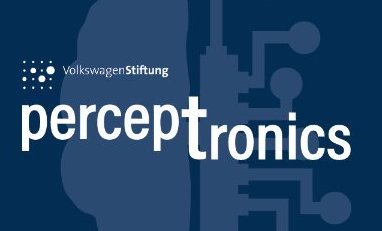
Olfaction is an evolutionary old sense, which provides unique and sophisticated access to information of our surroundings. It is not only crucial for appetite and taste, but also plays an important role in social interactions, such as bonding with family members or the partner. The sense of smell also warn us of dangerous substances - whether gas or fire or spoiled food. In fact, people are even able to infer the state of health or emotions of others based on their body odour. The digitisation of olfaction therefore promises to drive a "next generation" of artificial intelligence, which could impressively help shape the smart phones or smart homes of the future, among other things. In addition, artificial noses, also known as "eNoses", have applications in numerous health applications, e.g. for people with olfactory disorders, which make up to ~20% of the population – even before COVID times.

The aim of our research in various projects is to enable the digitisation of olfaction in an innovative and highly interdisciplinary setting. Compared to the visual and auditory senses, which have long since found their way into artificial intelligence applications, such as intelligent image recognition and voice assistants, the sense of smell is comparatively poorly understood. To change this, machine learning plays an important role: on the one hand, for the intelligent discovery and prediction of complex chemical interactions of smelling substances. On the other hand, and in particular, for the imitation of human perception of smells, which is also significantly influenced by factors such as experience with the smell, bodily states such as hunger or characteristics of one's own personality.
Olfactorial Perceptronics (since 2020)
The project Olfactorial Perceptronics is part of the initiative “Change of Course: New research area between life sciences and natural or technical sciences” of the Volkswagen Foundation. The aim of the initiative is to pave the way for a research group to enter a new, pioneering field of research that goes beyond the boundaries of its own discipline. To this end, an interdisciplinary working group is to be established, consisting of four doctoral students from different disciplines who will be trained together in an interdisciplinary doctoral program. Participants in the project are the Institute of Materials Science at the Technical University of Dresden, the Interdisciplinary Center for Smell and Taste at the University Hospital Dresden, as well as the Institute of Clinical Psychology and the Institute of Physical Chemistry at the Friedrich Schiller University of Jena.
https://perceptronics.science

SMELLODI (2022-2025)
SMELLODI – short for Smart Electronic Olfaction for Body Odor Diagnostics – is an EU funded project in the program “EIC pathfinder Open”. Based on the stringent combination of state-of-the-art sensor technology, a psychological understanding of olfactorial perception and the application of machine learning techniques, SMELLODI will develop a science to technology breakthrough which will ultimately enable the recognition and transmission of odors. Our interdisciplinary and international team from Dresden, Jena, Israel and Tampere combines expertise in nano and sensor technology, clinical olfaction and psychological perception, chemistry and material science. By focusing on body odors, SMELLODI will provide an innovative technology for remote medical diagnostics and for aiding persons with olfactorial dysfunctions. Metabolic changes and inflammatory processes lead to changes in the body odor profile, making it most suitable for disease diagnostics and health monitoring. We will build a proof-of-principle odor display, which will demonstrate the recognition and transmission of body odors based on the biomimetic functionalization of the e-nose sensor material.

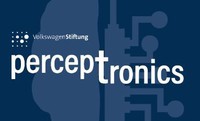























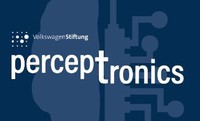



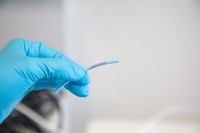

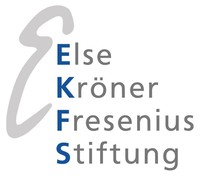



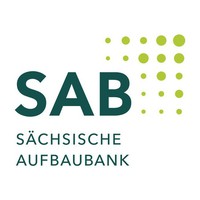





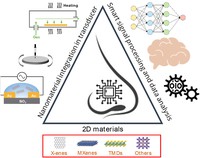

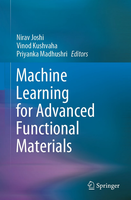

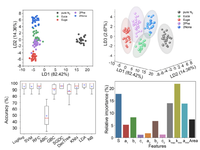

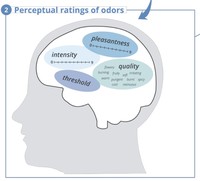



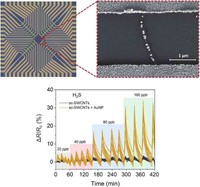

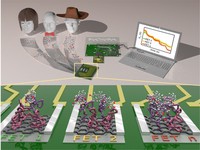

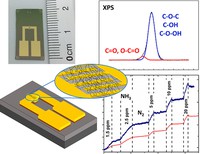


Olfaction is an evolutionary old sense, which provides unique and sophisticated access to information of our surroundings. It is not only crucial for appetite and taste, but also plays an important role in social interactions, such as bonding with family members or the partner. The sense of smell also warn us of dangerous substances - whether gas or fire or spoiled food. In fact, people are even able to infer the state of health or emotions of others based on their body odour. The digitisation of olfaction therefore promises to drive a "next generation" of artificial intelligence, which could impressively help shape the smart phones or smart homes of the future, among other things. In addition, artificial noses, also known as "eNoses", have applications in numerous health applications, e.g. for people with olfactory disorders, which make up to ~20% of the population – even before COVID times.

The aim of our research in various projects is to enable the digitisation of olfaction in an innovative and highly interdisciplinary setting. Compared to the visual and auditory senses, which have long since found their way into artificial intelligence applications, such as intelligent image recognition and voice assistants, the sense of smell is comparatively poorly understood. To change this, machine learning plays an important role: on the one hand, for the intelligent discovery and prediction of complex chemical interactions of smelling substances. On the other hand, and in particular, for the imitation of human perception of smells, which is also significantly influenced by factors such as experience with the smell, bodily states such as hunger or characteristics of one's own personality.
Olfactorial Perceptronics (since 2020)
The project Olfactorial Perceptronics is part of the initiative “Change of Course: New research area between life sciences and natural or technical sciences” of the Volkswagen Foundation. The aim of the initiative is to pave the way for a research group to enter a new, pioneering field of research that goes beyond the boundaries of its own discipline. To this end, an interdisciplinary working group is to be established, consisting of four doctoral students from different disciplines who will be trained together in an interdisciplinary doctoral program. Participants in the project are the Institute of Materials Science at the Technical University of Dresden, the Interdisciplinary Center for Smell and Taste at the University Hospital Dresden, as well as the Institute of Clinical Psychology and the Institute of Physical Chemistry at the Friedrich Schiller University of Jena.
https://perceptronics.science

SMELLODI (2022-2025)
SMELLODI – short for Smart Electronic Olfaction for Body Odor Diagnostics – is an EU funded project in the program “EIC pathfinder Open”. Based on the stringent combination of state-of-the-art sensor technology, a psychological understanding of olfactorial perception and the application of machine learning techniques, SMELLODI will develop a science to technology breakthrough which will ultimately enable the recognition and transmission of odors. Our interdisciplinary and international team from Dresden, Jena, Israel and Tampere combines expertise in nano and sensor technology, clinical olfaction and psychological perception, chemistry and material science. By focusing on body odors, SMELLODI will provide an innovative technology for remote medical diagnostics and for aiding persons with olfactorial dysfunctions. Metabolic changes and inflammatory processes lead to changes in the body odor profile, making it most suitable for disease diagnostics and health monitoring. We will build a proof-of-principle odor display, which will demonstrate the recognition and transmission of body odors based on the biomimetic functionalization of the e-nose sensor material.
























































